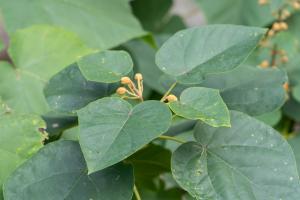Introduction
When getting a new rubber plant, one of the most important things to consider is the size of the pot it needs. Choosing the right pot size ensures that your plant has enough space to grow roots and flourish. In this article, we’ll take a closer look at the optimal pot size for a rubber plant.
Why Pot Size Matters
The roots of a rubber plant need room to grow, which is why choosing the right pot is crucial. If the pot is too small, the plant may become root-bound, meaning its roots are tangled and restricted, preventing it from taking in adequate water and nutrients. In contrast, if the pot is too large, it can lead to overwatering and increase the risk of root rot. The ideal pot size for a rubber plant is one that provides sufficient space for the roots to grow without being too large.
Factors That Affect Pot Size
When deciding on the right pot size for your rubber plant, there are several factors to consider:
The size of the plant - young rubber plants require smaller pots, while larger, more established plants need larger pots
The location of the plant - indoor rubber plants will require smaller pots as they have limited space to grow, while outdoor plants can have larger pots
The growth rate of the plant - faster-growing plants may require larger pots to accommodate their quicker root growth
Determining the Right Pot Size
The most straightforward way to determine the right pot size for a rubber plant is by considering the current size of the plant relative to the size of the existing pot. If you notice a significant amount of roots coming out of the drainage holes, it's a sign your plant is root-bound or outgrowing its current pot. It’s time to upgrade to a larger pot. On the other hand, if your rubber plant appears to be drowning, with leaves turning yellow and falling off, it may be an indication that the pot is too large, and you should consider downsizing for better drainage.
Pot Sizes for Young Rubber Plants
Younger rubber plants need smaller pots that provide ample room for root growth. A pot that is 2-4 inches larger than the nursery pot your plant came in is beneficial. Young plants usually require repotting every year or so until they reach maturity. A common mistake is to place a small plant in a large pot immediately, which can lead to overwatering and potential root rot.
Pot Sizes for Large Rubber Plants
For larger, more established plants, you'll want to choose a pot that is about 2-4 inches wider and deeper than its current pot. This allows sufficient space for root expansion and avoids the possibility of overwatering. The root system of mature rubber plants can go as deep as 15 inches, so a deep pot can be beneficial.
Conclusion
The proper pot size is essential for ensuring that your rubber plant is healthy and thrives. By choosing the right size pot, you'll give your plant the space and nutrient uptake it requires to grow and thrive. Consider the factors that can influence pot size, such as the plant's size, location, and growth rate. Choose a pot that is just a few inches larger than the existing pot, and repot your plant every year or so to ensure optimal growth.

 how many times do yo...
how many times do yo... how many planted tre...
how many planted tre... how many pine trees ...
how many pine trees ... how many pecan trees...
how many pecan trees... how many plants comp...
how many plants comp... how many plants can ...
how many plants can ... how many plants and ...
how many plants and ... how many pepper plan...
how many pepper plan...






























